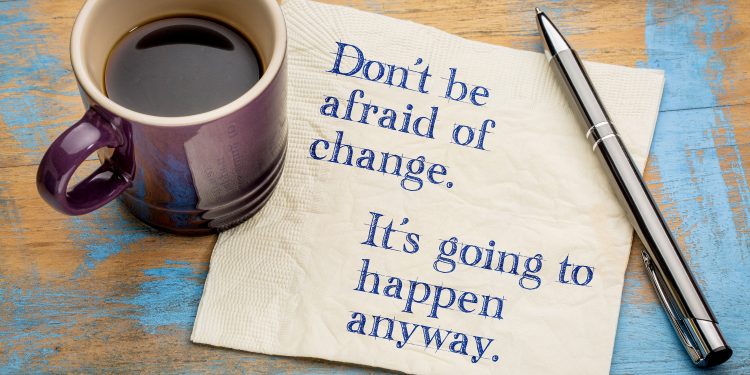by Dr. Jayde Kennedy-Ball, PsyD, LP, CBIS
Following a traumatic brain injury, life typically becomes a whirlwind surrounding the medical, physical, cognitive, and emotional implications. We get wrapped up in treatment and attempting to piece together some semblance of normalcy. Often, the impact the injury has on one’s relationships gets buried or put in the “We’ll get to it later” box, though this can become a source of the most prominent challenges to recovery. This article will focus on providing some insight and direction on how roles may change, identities may shift, and social connections are challenged for those who have been injured and their support systems. Within each of these areas, processes may be more fluid than concrete, as transitioning will be a constant and potentially lifelong journey.
It is important to recognize and normalize how taking on new roles, both for the injured person and the support system or caregiver(s) can result in a significant amount of stress that comes with learning new tasks. This process takes a team effort and an abundance of communication. When taking on a new role, or giving one away, take time to learn or teach; things that come naturally to you may differ from others. Taking time to model and teach can serve two key purposes: It can allow you to feel your input is being valued when giving up an aspect of your role, and it will enable the person taking on to that role to get the support they may need when learning a new skill.
Practice the skills of patience and understanding. While that may seem simplistic, it can be a foundational element in the success of transitioning roles.
Along with this factor, the practice of giving thanks can promote ease in the transition process. As stated earlier, taking on and giving away roles can result in a lot of stress; showing appreciation and awareness of this can provide necessary reassurance. Remember to set aside time to “take the hat off.” Adjusting to new roles can be exhausting, and it is essential to take a break and make time for respite. Lastly, know and validate your value; change is often laden with negative perceptions. Even when roles or functions within relationships change, it does not mean the overall value has changed.
A traumatic brain injury can change how you see yourself and others; it is reasonable to experience an entire shift in your own identity. It will be essential to value the process of getting to know yourself, by taking time to explore and reflect on what traits you identified with before the injury and whether or not those traits remain present. There may be new qualities to incorporate based on the injury or how your role changed. It can be difficult to toe the line between reflecting and comparing, as comparing may lead to romanticizing and/or devaluing the current status or level of functioning. One way to promote healthy reflection is to work on establishing the “whole picture.” More simply, do not discount the positives that exist within change just because the challenges may be glaringly present—specifically looking for the positives can promote a more rounded and rational picture. Finally, know that perfecting new skills and accepting new traits can take time, just as they did to develop in the first place. Embracing the process of learning can support a healthier outlook and outcome.
Awareness of how emotional changes can affect the sense of connection can promote overall adjustment. Emotional connections are known and understood to change naturally throughout our lives, but navigating them when they are sudden and unexpected can result in a lot of irrational guilt and blame for the outcomes. Going through the process of recovery can change relationships for a multitude of reasons. Just as the previous step touched on getting to know yourself again, you may also have to get to know each other again. Your connection may look different from before and may require some extra attention to reestablish. Understanding and accepting this will take time. Allow for feasible expectations, and necessary wiggle room.
This last piece will be imperative to all aspects of navigating change: communication. Again, it may seem like a simple element but it can serve to devastate or uphold success with adjustment and transition. Key points within the goal of effective communication:
• First, listen for emotions. Emotions serve as a telling aspect of what one is attempting to communicate and can allow for empathy and understanding when we may not necessarily connect to what the other is verbally saying. • Next, identify what you do agree on versus all the things you do not, as this can provide more stability in addressing disagreements.
• Differentiate between being assertive and confrontational; being assertive can allow for respectful and successful advocacy for your needs. • Finally, make time for feedback—both giving and receiving! Whether or not we are asking for feedback often has a direct correlation with our level of receptiveness. Developing a system where feedback is expected and planned can have a significant impact on the success of how we communicate.
The factors discussed in this article serve as only the tip of the iceberg for how relationships can change following an injury and how to navigate those changes. However, they are a good start for developing a strong foundation to weather this storm. These changes take time to process and involve many victories and defeats. Let your counterpart know that you have the same goal, even if your steps look different to achieve them.
Dr. Jayde Kennedy-Ball, PsyD, LP, CBIS, is a clinical psychologist at Origami Brain Injury Rehabilitation Center. Origami is a CARF (Commission on Accreditation of Rehabilitation Facilities) accredited 501(c)(3) nonprofit organization. Origami provides comprehensive rehabilitation for adolescents and adults with neurological dysfunction through their residential, outpatient, and community-based programs. With their compassionate and innovative services, Origami creates opportunities and transforms lives. Learn more at OrigamiRehab.org.











